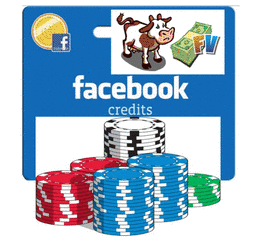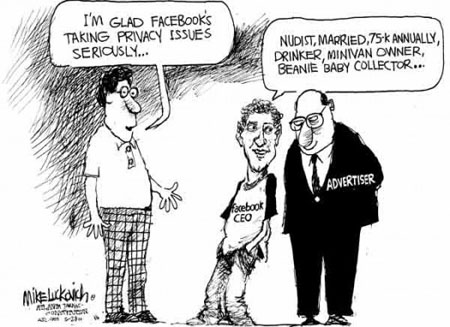Facebook与Zynga,谁能掌握游戏虚拟货币话语权?
继上月Target商店首家开始零售Facebook Credits礼物卡后,本周沃尔玛和百思买也趁着节日之际,开始销售面值为5美元、10美元和25美元的Facebook Credits。与此同时,Zynga提出为“多人网络游戏网站的虚拟游戏筹码”申请专利。这一做法是与Facebook毫无关联亦或标志着Facebook和Zynga两大网络巨头的策略战序曲?
早在今年5月,我们便发表了题为“意愿之战——Zynga拒绝向Facebook支付30%的Facebook Credits税收”的评论文章。当时,Zynga公司的创办者Mark Pincus的确曾威胁要将所有旗下游戏从Facebook平台撤离,计划发布自己的社交网站Zynga Live,以此来对付Facebook提出的30%游戏收入分成。
然而最终Zynga显然不愿意“恩将仇报”,并同意屈服于Facebook的控制。之后,双方签订了为期5年的合作协议,Zynga同意使用Facebook Credits作为游戏虚拟货币。
最近Zynga对虚拟货币提出了专利申请这一做法似乎表明Zynga希望重新挽回在虚拟货币领域的优势。理所当然,这将为Zynga在与Facebook的谈判中增加“筹码”这对Zynga这一社交网络最大广告商尤为重要。
Zynga提出的这一专利可以为该公司虚拟货币交易提供合法渠道。迄今为止,网络游戏中的虚拟货币允许玩家进行各种游戏内交易,但这类交易并不受法律保护。据VentureBeat报导指出,非法交易现已在这类游戏中大量涌现,在中国等国家出现了很多非法操作。
该报导还指出Zynga的专利申请在虚拟货币要求中特别强调了虚拟货币交易是“单向的”,即玩家可以将现金转入虚拟货币系统,但不能将虚拟货币兑换成现金取出,预防有人以此赌博等危险。
然而,当Facebook与Zynga两相角逐谁将最终统领“令帮虚拟货币储存”的同时,两者都陷入了另一个麻烦之中。上周,Zynga由于非法泄露Facebook用户数据而面临游戏玩家提出的团体诉讼,而Facebook也不能独善其身。
最近的隐私泄露时间还有待法院裁决,但事件的结果可能再次加深Zynga和Facebook之间的鸿沟。下图漫画意为Facebook和Zynga都致力于发行属于自己的货币。(本文由游戏邦/gamerboom.com编译)
After Target became the first retailer to sell Facebook Credits gift cards in its stores last month, this week Walmart and Best Buy jumped into the fray selling $5, $10 and $25 denominations of FB Credits just in time for the holiday season. At the same time, Zynga filed a patent for “Virtual Playing Chips in a Multiuser Online Game Network.” Are these tactics separate issues or the first signs of a strategic battle of wills between the two Internet powerhouses?
Facebook CreditsFacebook CreditsBack in May, my posting titled “War of Wills – Zynga Refuses To Pay Facebook Credits’ 30 Percent Tax” higlighted the first gauntlet laid down by Zynga. At that time the online gaming company’s founder Mark Pincus actuallyMark PincusMark Pincus threatened to pull all their games off of Facebook and launch their own social network called Zynga Live – in retaliation of Facebook’s 30 percent cut of gaming proceeds. Name-calling was actually cited in a number of reports, and Michael Arrington at TechCrunch noted that Zynga felt that Facebook’s tactics were comparable to a “protection racket.”
However, Zynga apparently deciding not to ‘bite the hand that feeds’ pulled back from their hard-line position and actually appeared to ‘cave in’ to Facebook’s control of the situation. Subsequently, both parties have signed a five-year agreement committing Zynga to the use of Facebook Credits as the virtual currency of choice.
Now that the patent has been filed, it looks like Zynga might be experiencing buyer’s remorse in wanting to gain back some leverage in the virtual currency space. If granted, it could give Zynga a ‘leg-up’ in ongoing negotiations with Facebook, particularly since Zynga is believed to be one of the largest advertisers on social network.
The patent would allow Zynga a legal channel for virtual currency transactions. Up till now, online games
could offer virtual currencies for performing actions within a game where purchases of in-game objects could be traded – but these transactions have not traditionally been something one could purchase legally. According to VentureBeat report, as a result, booming bootleg economies have sprung up around these games leading to illicit operations in countries such as China.
The report goes on further to state that Zynga’s patent application stresses that one of its virtual-currency requirements is that the currency exchange be ‘one way” – where players can send cash into the system, but they can’t take cash out, arguably avoiding the risk of the regulations pertaining to gambling.
However, while Facebook and Zynga jockey for position as to who will have ultimate control of the ‘Federal Virtual Reserve’ coffers, both parties are embroiled in yet another volatile issue. Last week, a class action
law suit was filed in San Francisco accusing Zynga of illegally sharing Facebook user data of its customers with advertisers and data brokers. And Facebook is culplable as well.
How this most recent turn of events will turn out is yet to be decided by the courts, but based on the outcome it might widen the contentious gap between these two parties that feel they are both entitled to print their own money!(Source:inventorspot)










































 闽公网安备35020302001549号
闽公网安备35020302001549号